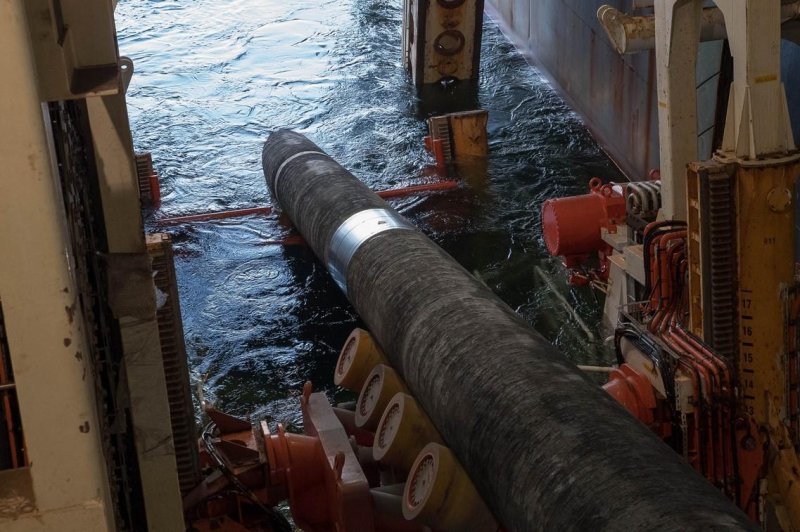1 of 3 | The Baltic Pipe is ready for the full capacity of natural gas, helping to address some of the lingering energy security concerns in Europe. Photo courtesy of Energinet.
Nov. 30 (UPI) -- It's a "huge day" for European energy security as full natural gas flows began Wednesday on a pipeline connecting Norway to the continental economies, the operators of the Baltic Pipe announced.
It took three years to build the pipeline network connecting Denmark, Norway and Poland and even longer for preparation given that it was proposed first well over a decade ago. Formally commissioned in October, the pipeline is now ready to operate at its full capacity of 350 billion cubic feet per year.
Progressing in earnest since suspected sabotage on the Nord Stream natural gas network, a Russian pipeline running through the Baltic Sea to Germany, Baltic Pipe goes a long way toward addressing European energy security concerns.
"It's a huge day for us in Europe," said Torben Brabo, the director of international relations at Energinet, a Danish gas transmission operator. "After a very intense process, we have reached the target and can open the valves on Baltic Pipe."
For Europe, Baltic Pipe helps break Poland's heavy dependence on Russia for its natural gas, diminishing the Kremlin's clout in the former Soviet republic. It also supports others in the Baltic region that may be connected to Poland through pipelines.
The Organization for Economic Cooperation and Development found that, before the outbreak of the war in Ukraine in February, the EU relied on Russia for 40% of its natural gas supplies.
That's been reduced, however, thanks in part to a diversification effort, from imports of U.S.-sourced liquefied natural gas and now the Baltic Pipe.
The operator said that 80% of the pipeline's total capacity is booked for the next 15 years. All of the Baltic states have the option to bid for the remaining capacity to supplement the natural gas coming already from Norway.
"There has been excellent cooperation across the countries, and we can build on this, when we are going to work even closer together on energy and the expansion of renewable energy in future," Brabo from Energinet continued. "Cross-border cooperation is not only a necessity in order to overcome the energy crisis, but also to ensure that we achieve a safe and efficient green transition."
Baltic Pipe is a collaboration between Energinet and Polish gas transmission system operator GAZ-SYSTEM.















